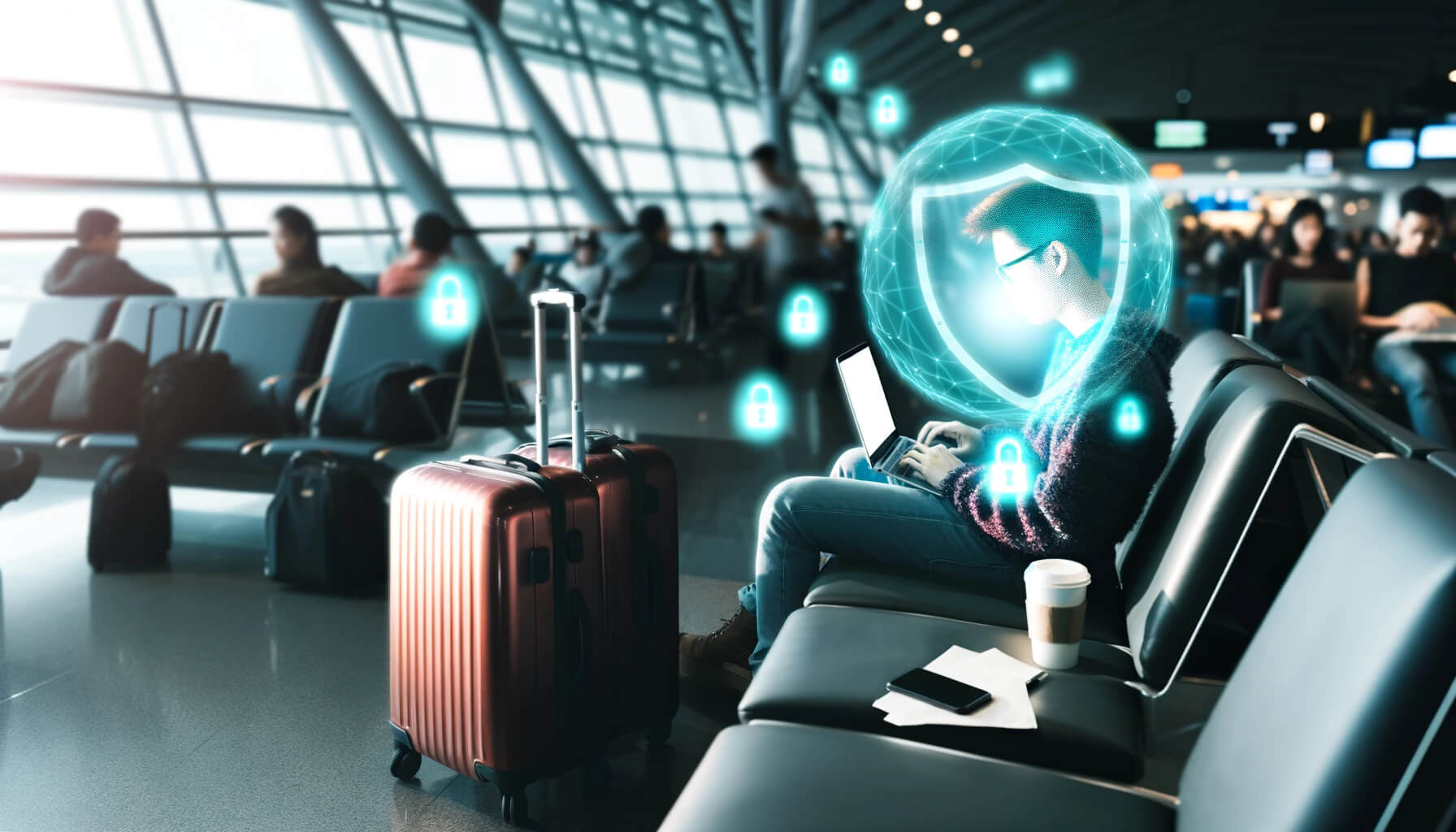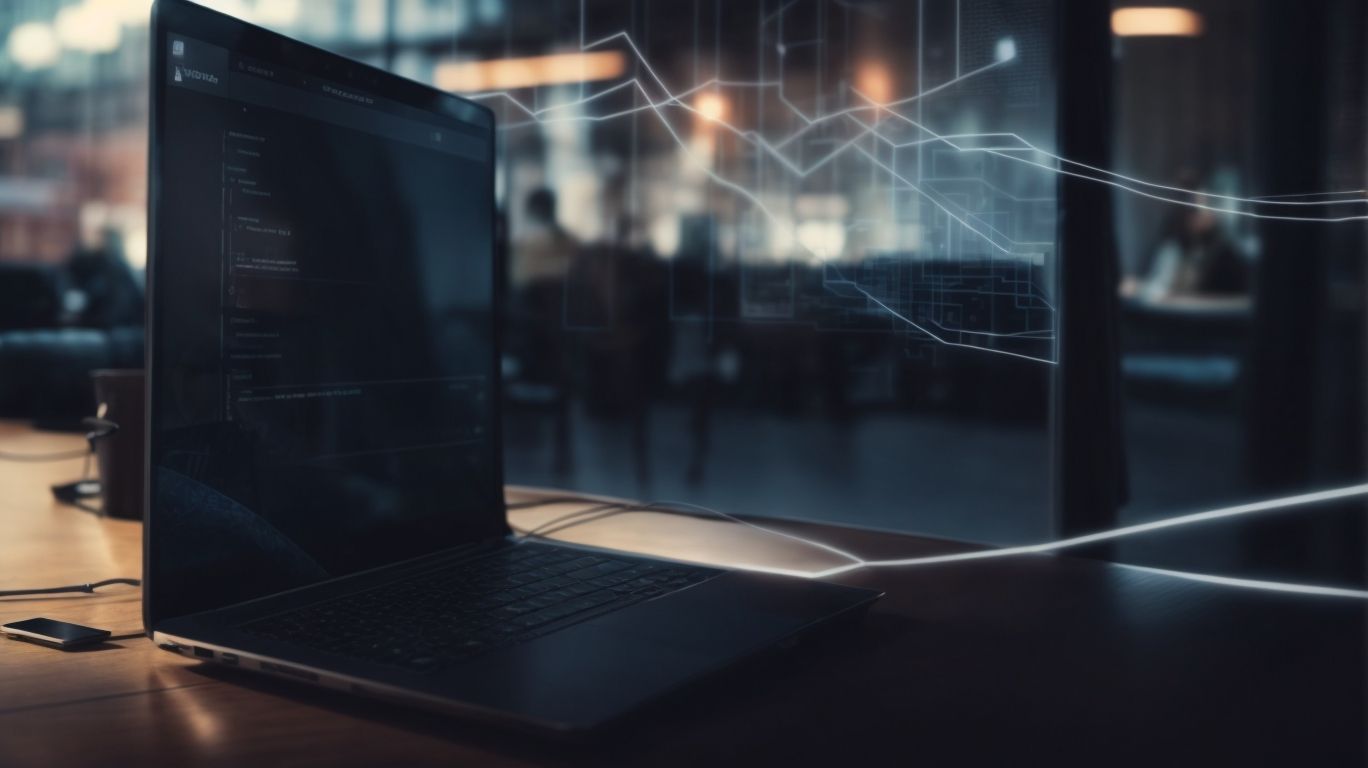In today’s interconnected world, public networks have become an essential part of our daily lives. With convenience comes risk. From man-in-the-middle attacks to data interception, there are numerous threats lurking on public networks that can compromise your sensitive information.
This article will explore why it is crucial to stay safe on public networks, the risks involved, and most importantly, how you can protect yourself while using them. Let’s dive in and learn how you can safeguard your online presence while on the go.
Table of Contents
Key Takeaways:
1. Always use caution when connecting to public networks while traveling to avoid the risks of man-in-the-middle attacks, malware infections, and data interception.
- Protect your sensitive information by using a VPN, avoiding public Wi-Fi for financial transactions, and enabling two-factor authentication.
- Practice good cybersecurity habits such as using strong passwords, logging out of accounts, and being aware of your surroundings to stay safe on public networks.
What Are Public Networks?
Public networks, such as Wi-Fi hotspots in public spaces, provide internet connectivity to users on the go.
These networks are crucial for individuals seeking access to online resources while outside their homes or workplaces. Whether it’s checking emails, browsing social media, or streaming videos, public networks offer a convenient solution for staying connected on-the-fly.
The accessibility of public networks has transformed the way people interact with the digital world, allowing seamless internet connectivity in cafes, airports, libraries, and other public areas. This widespread availability of Wi-Fi hotspots has made it easier for users to remain connected and productive even when away from their primary internet sources.
Why Is It Important To Stay Safe On Public Networks?
Ensuring security on public networks is crucial to protect sensitive data from potential hackers and unauthorized access.
Public networks, especially those in cafes, hotels, and airports, are breeding grounds for cyber threats. Connecting to these networks puts your personal and financial information at risk, making you vulnerable to data breaches and identity theft if not properly secured. Hackers often lurk on public Wi-Fi, ready to intercept your data packets and exploit any vulnerabilities in your device or applications. Employing encryption techniques provides a shield against these looming dangers and establishes a secure connection for your online activities.
What Are The Risks Of Using Public Networks?
Using public networks exposes users to various risks, including malware infections, hacking attempts, and potential data breaches.
When connecting to a public network, individuals may unknowingly download malicious software that can result in serious security issues. These malware infections can compromise personal data, financial information, and even lead to identity theft. Hackers often target public networks to intercept sensitive information being transmitted, such as login credentials or banking details. This makes public networks highly vulnerable to cyber attacks aimed at stealing valuable data. Therefore, it is crucial to exercise caution and practice good cybersecurity habits to protect oneself while using public networks.
Man-In-The-Middle Attacks
Man-in-the-Middle (MitM) attacks occur when a cybercriminal intercepts communication between two parties to eavesdrop or manipulate data.
A Man-in-the-Middle attack typically involves the attacker secretly relaying and possibly altering the communication between the victims, leading both parties to believe they are directly communicating with each other. This type of attack can result in severe consequences, such as unauthorized access to sensitive information, theft of credentials, or even the insertion of malicious software into the communication stream.
To prevent or mitigate the risks posed by MitM attacks, encryption protocols like SSL/TLS can be implemented to secure data in transit. Usage of VPNs, public key infrastructure (PKI), and two-factor authentication (2FA) can add layers of security, making it more challenging for attackers to intercept and manipulate communications.
Malware Infections
Malware infections on public networks can compromise the security of devices by infiltrating systems and stealing sensitive information.
Malware poses a significant risk to individuals who connect to public networks, such as Wi-Fi hotspots in cafes, airports, or libraries. These networks are prime targets for cybercriminals who deploy different types of malware, including viruses, spyware, ransomware, and phishing scams.
Once infiltrated, malware can not only compromise the security of the device but also jeopardize personal data privacy. To protect against these threats, it is essential to take proactive measures. Implementing strong security measures, such as using a reliable antivirus program, keeping software updated, and avoiding clicking on suspicious links or downloading attachments from unknown sources, can help prevent malware infections. Regularly scanning devices for malware and being cautious when connecting to unfamiliar networks can aid in detecting and removing any potential threats.”
Data Interception
Data interception involves unauthorized access to data transmitted over public networks, leading to potential data breaches and privacy violations.
When data is intercepted, it can be read, altered, or even stolen by malicious actors seeking to exploit sensitive information for personal gain or other malicious intents. This poses significant risks to individuals, organizations, and even governments whose data may be compromised.
To mitigate these threats, individuals and businesses can employ encryption technologies to secure their data transmissions, ensuring that intercepted data remains unreadable and unusable to unauthorized parties. Using virtual private networks (VPNs) and secure communication protocols can create secure channels for data transfer, further protecting sensitive information from interception.
How To Stay Safe On Public Networks?
To enhance security on public networks, using a Virtual Private Network (VPN) can encrypt data transmissions and establish a secure connection for improved data privacy.
When connected to a public Wi-Fi network, cybercriminals can intercept your data transmissions, putting your sensitive information at risk. Utilizing a VPN adds an extra layer of security by encrypting your data, making it unreadable to unauthorized parties. This encryption process ensures that your communications remain confidential and secure.
VPNs play a crucial role in enabling secure access to company resources for remote employees. By creating a private network over a public infrastructure, VPNs allow users to securely connect to their organization’s servers and databases from anywhere in the world.
Use A Virtual Private Network (VPN)
Utilizing a Virtual Private Network (VPN) enables users to route their internet traffic through a secure VPN server, providing encrypted communication using protocols like SSL.
One of the key functions of a VPN is to establish a secure connection between the user’s device and the VPN server, encrypting all data traffic that passes through. This encryption process helps to shield sensitive information from potential hackers or unauthorized third parties attempting to intercept the data. Secure Socket Layer (SSL) encryption, a widely used security protocol, plays a crucial role in ensuring that communication over the VPN remains confidential and secure. Setting up a VPN typically involves downloading VPN software on the device, selecting a preferred server location, and entering login credentials to establish the connection.
Avoid Using Sensitive Information
It is advisable to refrain from entering sensitive information such as login credentials or passwords when using public networks to mitigate the risk of data exposure.
Public networks, including those in cafes, airports, and other shared spaces, are susceptible to cyber threats that can compromise your confidential data. When accessing online accounts or conducting transactions outside the safety of your secured home network, extra precaution is necessary to safeguard your personal information.
One of the best practices to protect yourself is to use virtual private networks (VPNs) that encrypt your data and shield it from potential eavesdroppers on public Wi-Fi networks. Choosing unique and strong passwords, enabling two-factor authentication where available, and updating your devices regularly are vital steps in fortifying your online security.
Enable Two-Factor Authentication
Implementing Two-Factor Authentication (2FA) provides an additional layer of security by requiring users to verify their identity through a secondary authentication method.
By adding this extra step, 2FA significantly reduces the risk of unauthorized access to sensitive information and accounts. One of the key benefits of 2FA is that it adds a crucial barrier for potential hackers, even if they have obtained login credentials through phishing or other means.
Setting up 2FA is a straightforward process, usually involving the use of a smartphone app, SMS codes, or physical security keys. This added security measure ensures that even if someone gets hold of a user’s password, they would still need the second form of verification to gain access.
It is highly recommended to enable 2FA for all your online accounts, including email, social media, banking, and more. This proactive step can safeguard your personal data and financial information from cyber threats, enhancing overall cybersecurity.
Keep Your Software And Devices Up To Date
Regularly updating software and devices is essential to maintain data security and protect against vulnerabilities that could be exploited on public networks.
These updates are not just about adding new features or improving performance; they often include crucial security patches that address known vulnerabilities. Updating your software and devices also ensures that you are running the latest versions, which are more likely to have the most up-to-date security measures in place.
By staying current with updates, you are effectively closing the door on potential cyber threats that could compromise your sensitive information. Neglecting these updates can leave you exposed to malicious attacks and data breaches.
Use HTTPS Websites
Opting for websites with HTTPS encryption ensures secure connections and encrypts data exchanged between the user’s device and the website servers.
When a website utilizes HTTPS, it means that the data transmitted between the user and the server is encrypted, making it incredibly difficult for malicious actors to intercept or tamper with the information. This encryption process scrambles the data so that even if intercepted, it appears as nonsensical characters without the decryption key. This level of security is vital, especially when you consider the sensitive information we often share online, including personal details, financial transactions, and passwords.
Disable File Sharing
Disabling file sharing on public Wi-Fi networks prevents inadvertent sharing of data with unknown devices connected to the same network.
When connected to a public Wi-Fi network, your device is vulnerable to potential security threats, including unauthorized access to your personal information through file sharing. Enabling file sharing on such networks can expose your sensitive data to cyber attackers and compromise your privacy.
To safeguard your information, it is crucial to disable file sharing settings on your device. This can be done by adjusting the network and sharing settings in your device’s control panel or system preferences.
By limiting connections and ensuring that file sharing is turned off, you significantly reduce the risk of data breaches and unauthorized access to your files. Prioritizing data privacy is essential in today’s digital age where cyber threats are rampant.
What Are The Best Practices For Using Public Networks?
Implementing best practices while using public networks, such as strong password usage and firewall protection, enhances data security and privacy.
Ensuring a complex and unique password is fundamental in safeguarding your online accounts from unauthorized access. Enabling two-factor authentication adds an extra layer of security.
Utilizing a firewall acts as a barrier, filtering incoming and outgoing network traffic, preventing potential cyber threats and malicious attacks.
It is advisable to connect to public networks through secure connections such as Virtual Private Networks (VPNs), encrypting data transmission and masking your IP address.
Enabling private browsing modes on web browsers restricts tracking cookies and browsing history, preserving anonymity and privacy.
Use A Strong Password
Employing a strong password with a combination of letters, numbers, and special characters is crucial to safeguard accounts from unauthorized access.
Strong passwords act as the first line of defense in protecting your online accounts and sensitive information from cyber threats. To optimize your password security, consider using a passphrase that is at least 12 characters long. Incorporating a mix of uppercase and lowercase letters, numbers, and special symbols can significantly increase the complexity and strength of your password.
It’s advisable to avoid using easily guessable information like birth dates, pet names, or common words. Instead, opt for random sequences of characters or employ the first letters of a phrase that is meaningful to you but hard for others to guess.
Log Out Of Accounts After Use
Logging out of accounts after use prevents unauthorized access to personal information and enhances account security on public networks.
When you leave your accounts signed in, you risk exposing sensitive data to potential security breaches. Hackers can easily access your personal information, messages, and even financial details if you forget to log out of your accounts on shared computers or public Wi-Fi networks. It’s crucial to be vigilant and adopt best practices for safeguarding your online accounts.
Always remember to log out, utilize two-factor authentication when possible, and refrain from saving passwords on public devices.
Be Aware Of Your Surroundings
Remaining vigilant and aware of surroundings can help users identify potential surveillance, cyber threats, or malicious activities on public internet networks.
By being proactive in monitoring your digital footprint and regularly reviewing your online accounts for any suspicious activities, you can stay ahead of potential cyber threats. Recognizing signs such as odd emails requesting sensitive information, unexplained pop-ups, or sudden slowdowns in device performance can indicate possible infiltration attempts. It’s crucial to exercise caution when clicking on links from unknown senders and ensure that your devices have the latest security updates and robust antivirus software installed.
Use A Firewall
Activating a firewall on devices adds an additional layer of security by monitoring and controlling network traffic, protecting against unauthorized access.
Firewalls act as a shield between your device and potential cyber threats, filtering incoming and outgoing data packets to block malicious content. By setting up a firewall properly, users can prevent hackers from gaining unauthorized access to their system, reducing the risk of data breaches and cyberattacks.
Configuring firewall settings is crucial to tailor the protection level as per individual needs, allowing specific programs or services to communicate while blocking suspicious activities. It’s essential to regularly update and maintain firewall rules to adapt to evolving threat landscapes and ensure ongoing network security.
Use Private Browsing Mode
Utilizing private browsing mode helps maintain data privacy by preventing the storage of browsing history and cookies, especially on unsecured networks.
Private browsing modes are designed to keep personal information like passwords and usernames safe from being stored or accessed by websites. By blocking third-party cookies and tracking scripts, they enhance online anonymity and safeguard user identities. This feature is particularly beneficial when using shared computers or public Wi-Fi networks where data security risks are higher.
Private browsing modes do not save search terms, downloads, or form data once the session is closed, providing an added layer of protection against unauthorized access.
What Are The Best Practices For Using Public Networks?
Implementing best practices while using public networks, such as strong password usage and firewall protection, enhances data security and privacy.
It is crucial to regularly update passwords and avoid using the same password across multiple platforms to reduce the risk of breaches. Enabling two-factor authentication adds an extra layer of security to accounts. Utilizing a reliable Virtual Private Network (VPN) ensures secure connections by encrypting data transmitted over the network.
Activating the firewall on your device can prevent unauthorized access and potential threats. Selecting HTTPS websites for browsing helps in establishing secure connections, protecting sensitive information from malicious activities. Using private browsing modes can also safeguard your browsing history and session data from being tracked by third parties.
Change Your Passwords
Changing passwords regularly helps prevent unauthorized access to accounts and safeguards sensitive information from potential security breaches.
Implementing periodic password changes is a fundamental practice in maintaining cybersecurity measures. By updating passwords frequently, users create an additional layer of defense against cyber threats and intruders attempting unauthorized access. Strong passwords are essential in this process; a combination of upper and lower case letters, numbers, and symbols can significantly enhance the security of an account. It’s crucial to avoid common words, phrases, or easily guessable information when crafting passwords.
- Along with complexity, length is a vital factor in password strength. Opting for longer passphrases rather than short passwords can further fortify account security.
- Password security plays a pivotal role in protecting personal information, financial data, and confidential communications. A compromised password can lead to severe consequences, such as identity theft and financial losses.
- Using unique passwords for each account is highly recommended to prevent a domino effect in case one account is compromised. Password managers can be useful tools to securely store and manage multiple complex passwords.
Contact Your Bank Or Credit Card Company
In case of suspected security breaches, contacting your bank or credit card company is essential to prevent potential identity theft or financial losses due to data breaches.
It is crucial to review your financial statements regularly for any unauthorized transactions or unusual activities.
Another step is to report your concerns to the credit bureaus to place a fraud alert on your accounts, which can help prevent further unauthorized access to your information.
Seek professional assistance from cybersecurity experts or identity protection services to assess and minimize the risks of prolonged data exposure or misuse.
Run A Full Antivirus Scan
{
Performing a comprehensive antivirus scan on devices helps detect and remove malware, viruses, and other cyber threats that may have infiltrated through public network connections.
“expanded_text”One of the key benefits of running regular antivirus scans on your devices is the ability to safeguard your sensitive information from falling into the hands of cybercriminals. These scans play a crucial role in ensuring that your personal data, such as passwords, financial details, and documents, remains secure and protected. By scanning your devices frequently, you are taking a proactive approach towards fortifying your defenses against evolving cyber threats. This preventative measure can help prevent potential cyberattacks and disruptions to your daily operations.”
}{
“first_sentence”
Performing a comprehensive antivirus scan on devices helps detect and remove malware, viruses, and other cyber threats that may have infiltrated through public network connections.
“expanded_text”
One of the key benefits of running regular antivirus scans on your devices is the ability to safeguard your sensitive information from falling into the hands of cybercriminals. These scans play a crucial role in ensuring that your personal data, such as passwords, financial details, and documents, remains secure and protected. By scanning your devices frequently, you are taking a proactive approach towards fortifying your defenses against evolving cyber threats. This preventative measure can help prevent potential cyberattacks and disruptions to your daily operations.”
}
Report The Incident To The Appropriate Authorities
Informing the relevant authorities about security incidents on public networks can help address cyber threats, prevent future attacks, and protect user data on the public internet.
Regarding reporting security incidents, swift action is crucial in mitigating potential risks to sensitive information. By promptly alerting the appropriate authorities, such as cybersecurity agencies or internet service providers, individuals and organizations can contribute to the collective effort of enhancing online safety.
Notifying relevant entities enables comprehensive investigations into the nature and scope of the incident, aiding in the identification of vulnerabilities and the formulation of effective countermeasures. This proactive approach not only safeguards current data but also fortifies defenses for the future. https://www.youtube.com/embed/9Wk3zwlpOYY







